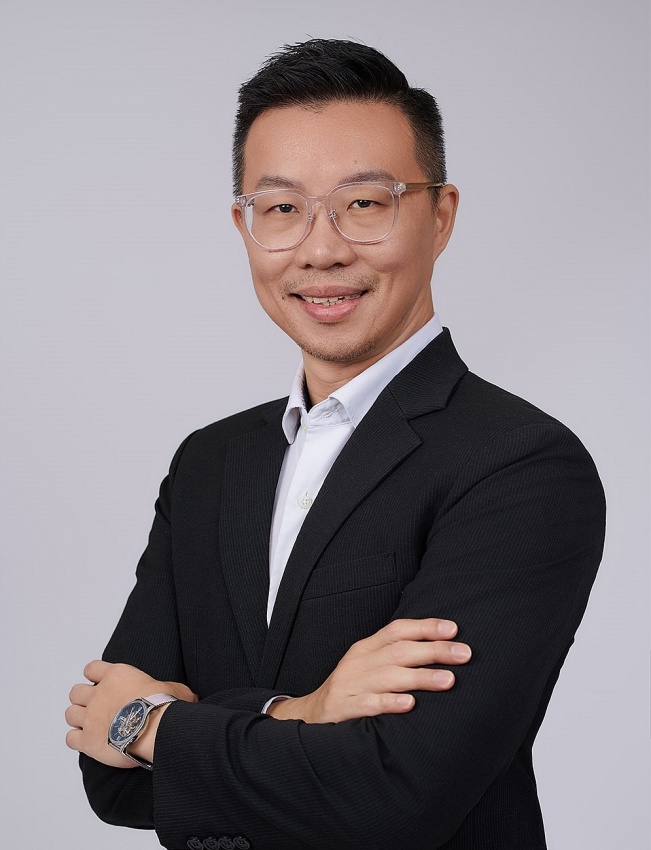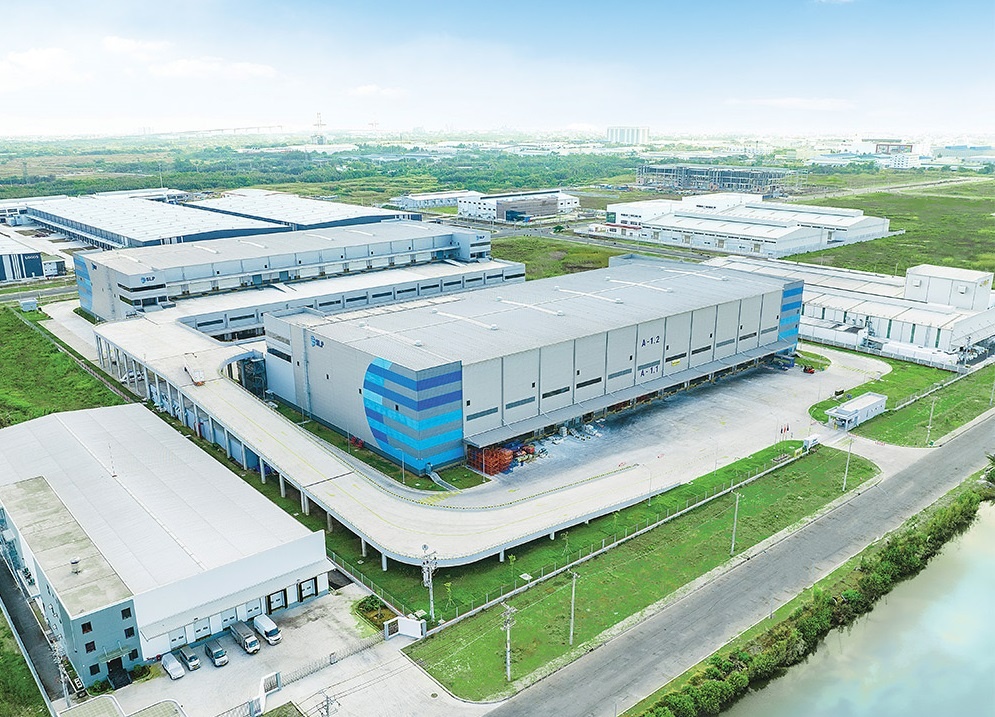Operational efficiency is ensured via SLP’s offerings
Since the launch of the $1 billion Vietnam Logistics Development Fund in 2022, how has SLP allocated this so far to facilitate the expansion of the Vietnamese market?
 |
| Edwin Chee, chief operating officer of SLP Vietnam |
Since the inception of the Vietnam Logistics Development Fund, SLP has strategically allocated the fund to key infrastructure projects across the country. We have invested in the development of modern industrial and logistics facilities in strategic locations such as Bac Ninh, Haiphong, Long An, Vinh Long, and upcoming projects in Hung Yen and Dong Nai.
These investments have enabled us to build state-of-the-art warehouses and factories, which are crucial for enhancing Vietnam’s logistics and operational capabilities and attracting global investors. Additionally, a significant portion of the fund has been dedicated to adopting advanced features and technologies to optimise our operations and improve tenant satisfaction.
What are the opportunities and competition in Vietnam’s industrial property market amidst the restructuring of the global supply chain?
Vietnam’s industrial property market is brimming with opportunities as companies seek to diversify their supply chains. The country’s strategic location, favourable trade agreements, and competitive labour costs make it an attractive destination for investment. However, this has also heightened competition among industrial property developers.
To stand out, SLP leverages deep industry knowledge, global best practices and know-how and financial strength to offer customised solutions that cater to the unique needs of our tenants, thereby attracting and retaining high-quality clients.
Vietnam is striving to lure a high level of foreign investment, especially in semiconductors, electronics, and electrical vehicles. What are your recommendations for Vietnam to improve its industrial property policies to attract these investors?
To attract high levels of foreign investment in specialised sectors like semiconductors, electronics, and electric cars, Vietnam needs to develop more specialised industrial parks (IPs) and high-tech zones.
This can be achieved by offering attractive incentives, streamlining administrative procedures, and ensuring robust infrastructure support.
Additionally, fostering a skilled workforce through targeted education and training programmes will be essential. SLP is committed to supporting these initiatives by developing facilities that meet the specific needs of these high-tech industries.
Industrial property developers have stepped up their merger and acquisition (M&A) strategies. What is SLP doing in this area to secure a stronger footprint in the country?
SLP’s M&A strategy is focused on acquiring high-quality assets and well-located land plots that align with our growth objectives. We aim to identify and acquire properties that offer significant value-added potential through redevelopment or strategic enhancements. By integrating these assets into our existing portfolio, we can leverage our operational expertise to maximise returns. We also seek partnerships with local developers to tap into their market knowledge and expedite our expansion plans.
In general, the M&A landscape in Vietnam’s industrial property market looks promising for 2024. As the market matures, we expect to see increased consolidation, with developers seeking to enhance their portfolios through strategic acquisitions. Rising competition and the need for modern, efficient industrial and logistics facilities will drive M&A activity.
SLP is well positioned to capitalise on these opportunities, leveraging our strong financial backing and market expertise.
Many industrial developers have accelerated the adoption of AI, automation, and robots to reduce operation costs. Have you observed the effective utilisation of these technologies by industrial property developers in Vietnam?
Yes, the adoption of this technology is gradually gaining traction among industrial property developers in Vietnam, although at a slower pace compared to more mature markets. The primary barriers include a lack of infrastructure, technical know-how, and necessary skills.
However, notable advancements are being made. At SLP, we are at the forefront of this technological integration. We have installed smart gates in our industrial and logistics parks, which are not just about security; they’re about harnessing data to make operations more efficient, cost-effective, and resilient. These smart gates are a key part of the digital transformation revolutionising facilities management.
While overall adoption in Vietnam is still catching up, this gives us room to innovate and plan for more extensive technological implementation in the future.
 |
| Vietnam is looking to develop more specialised industrial and high-tech zones |
Could you share the top criteria for industrial property developers to build sustainable warehouses and eco-IPs encompassing environmental, social, and governance (ESG) practices?
The top criteria for building sustainable warehouses and eco-IPs include energy efficiency, waste reduction, and water conservation. Developers should prioritise the use of renewable energy sources, such as solar panels, and implement green building materials and designs that minimise environmental impact. Integrating smart technologies to monitor and manage resource consumption is also crucial.
Additionally, fostering a culture of sustainability among tenants and stakeholders through education and collaboration is essential for long-term success.
Vietnamese businesses can learn the importance of integrating ESG principles into their core operations. By prioritising sustainability, companies can enhance their competitiveness and appeal to environmentally conscious investors and customers.
SLP’s approach of incorporating energy-efficient designs, using renewable resources, and fostering a sustainable work environment can serve as a model. Additionally, transparent reporting and continuous improvement in ESG practices are vital for long-term success.
For example, SLP Park Long Hau, located in Long Hau 3 Industrial Park in Long An province, is a prime example of our commitment to sustainability and has received LEED certification.
The complex incorporates several high-efficiency features, including LED lighting and VFD pumps, to reduce energy consumption. Solar panels have been installed, further enhancing the park’s renewable energy capacity. The park’s design includes wall and roof insulation, smart irrigation systems, and drought-tolerant landscaping to minimise water usage.
Additionally, we have implemented advanced building systems commissioning and sub-metering for different water systems to monitor and optimise resource use. These sustainable initiatives reduce the park’s environmental footprint and provide significant cost savings for our tenants, demonstrating the tangible benefits of sustainable development.
By utilising industry knowledge and financial strength, how does SLP differentiate itself from other players to entice tenants?
SLP differentiates itself by offering a combination of high-quality infrastructure with multiple location solutions in prime areas, advanced technological integration, and flexible leasing options. Our facilities are designed to meet the highest international standards, ensuring operational efficiency and sustainability.
We also provide value-added services through our one-stop service station model to assist investors and tenants with investment procedures, facilities operation, and maintenance. Our robust financial backing allows us to invest in continuous improvements and expansion, thereby ensuring that we remain a step ahead of our competitors.
What the stars mean:
★ Poor ★ ★ Promising ★★★ Good ★★★★ Very good ★★★★★ Exceptional
Related Contents
Latest News
More News
- Sembcorp Development secures licence for VSIP in Khanh Hoa (December 31, 2025 | 18:54)
- Prodezi Long An advances towards integrated eco-centric industrial park model (December 26, 2025 | 11:16)
- Amata to develop $185 million Amata City Phu Tho (December 23, 2025 | 17:49)
- Work starts on Nhat Ban – Haiphong Industrial Zone Phase 2 (December 19, 2025 | 16:43)
- Becamex – Binh Phuoc drives sustainable industrial growth (November 28, 2025 | 15:22)
- South Korean investors seek clarity on IP lease extensions (November 24, 2025 | 17:48)
- CEO shares insights on Phu My 3 IP’s journey to green industrial growth (November 17, 2025 | 11:53)
- Business leaders give their views on ESG compliance in industrial parks (November 15, 2025 | 09:00)
- Industrial parks pivot to sustainable models amid rising ESG demands (November 14, 2025 | 11:00)
- Amata plans industrial park in Ho Chi Minh City (November 04, 2025 | 15:49)

 Tag:
Tag:



















 Mobile Version
Mobile Version